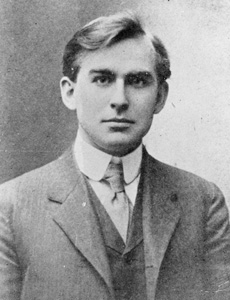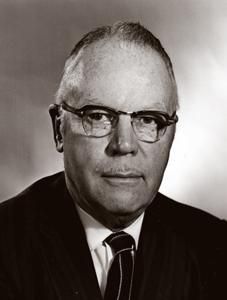
A Roman villa was typically a farmhouse or country house in the territory of the Roman Republic and the Roman Empire, sometimes reaching extravagant proportions.
The American Council of Learned Societies (ACLS) is a private, nonprofit federation of 75 scholarly organizations in the humanities and related social sciences founded in 1919. It is best known for its fellowship competitions which provide a range of opportunities for scholars in the humanities and related social sciences at all career stages, from graduate students to distinguished professors to independent scholars, working with a number of disciplines and methodologies in the U.S. and abroad.
Richard John Alexander Talbert is a British-American contemporary ancient historian and classicist on the faculty of the University of North Carolina at Chapel Hill, where he is William Rand Kenan, Jr., Professor of Ancient History and Classics. Talbert is a leading scholar of ancient geography and the idea of space in the ancient Mediterranean world.

The Aqua Augusta, or Serino Aqueduct was one of the largest, most complex and costliest aqueduct systems in the Roman world; it supplied water to at least eight ancient cities in the Bay of Naples including Pompeii and Herculaneum. This aqueduct was unlike any other of its time, being a regional network rather than being focused on one urban centre.

Tenney Frank was a prominent American ancient historian and classical scholar. He studied many aspects of Ancient Rome, for instance its economy, imperialism, demographics and epigraphy.
Boscotrecase is a comune (municipality) in the Metropolitan City of Naples in the Italian region Campania, located about 20 km southeast of Naples.
Caroline Astrid Bruzelius is an American art historian and expert in medieval architecture. She is the Anne M. Cogan Professor of Art and Art History at Duke University. In 2020 she was elected to the American Philosophical Society.
Kathleen M. Coleman is an academic and writer who is the James Loeb Professor of the Classics at Harvard University. Her research interests include Latin literature, history and culture in the early Roman Empire, and arena spectacles. Her expertise in the latter area led to her appointment as Chief Academic Consultant for the 2000 film Gladiator.

Gerald Frank Else was a distinguished American classicist. He was professor of Greek and Latin at University of Michigan and University of Iowa. Else is substantially credited with the refinement of Aristotelian scholarship in aesthetics in the 20th century to expand the reading of catharsis alone to include the aesthetic triad of mimesis, hamartia, and catharsis as all essentially linked to each other.
Alexander Gordon "Sandy" McKay, was a Canadian academic who specialized in Vergilian studies.

Shadi Bartsch-Zimmer is an American academic and is the Helen A. Regenstein Distinguished Service Professor of Classics at the University of Chicago. She has previously held professorships at the University of California, Berkeley and Brown University where she was the W. Duncan MacMillan II Professor of Classics in 2008-2009.
William Vernon Harris was the William R. Shepherd Professor of History at Columbia University until December 2017. He is the author of numerous groundbreaking monographs on the Greco-Roman world, he is a Fellow of the American Academy of Arts & Sciences, and he was awarded the Distinguished Achievement Award by the Andrew W. Mellon Foundation in 2008.
John Richard "Jaś" Elsner, is a British art historian and classicist, who in 2013 was Humfry Payne Senior Research Fellow in Classical Archaeology and Art at the University of Oxford, based at Corpus Christi College, and visiting professor of art history at the University of Chicago. He is mainly known for his work on Roman art, including Late Antiquity and Byzantine art, as well as the historiography of art history, and is a prolific writer on these and other topics. Elsner has been described as "one of the most well-known figures in the field of ancient art history, respected for his notable erudition, extensive range of interests and expertise, his continuing productivity, and above all, for the originality of his mind", and by Shadi Bartsch, a colleague at Chicago, as "the predominant contemporary scholar of the relationship between classical art and ancient subjectivity".
Amy Ellen Richlin is a professor in the Department of Classics at the University of California Los Angeles (UCLA). Her specialist areas include Latin literature, the history of sexuality, and feminist theory.
Annalisa Marzano, FRHistS FSA, MAE is an Italian-American archaeologist and academic. She is Professor of Classical Archaeology at the University of Bologna and has been Professor of Ancient History at the University of Reading in England. She specializes in Roman social and economic history.
Eleanor Winsor Leach was the Ruth N. Halls Professor with the Department of Classical Studies at Indiana University. She was a trustee of the Vergilian Society in 1978–83 and was second and then first vice-president in 1989–92. Leach was the president of the Society of Classical Studies in 2005/6, and the chair of her department (1978–1985). She was very involved with academics and younger scholars – directing 26 dissertations, wrote letters for 200 tenure and promotion cases, and refereed more than 100 books and 200 articles. Leach's research interests included Roman painting, Roman sculpture, and Cicero and Pliny's Letters. She published three books and more than 50 articles. Leach's work had an interdisciplinary focus, reading Latin texts against their social, political, and cultural context. From the 1980s onwards, she combined her work on ancient literature with the study of Roman painting, monuments, and topography.
Josephine Crawley Quinn is a historian and archaeologist, working across Greek, Roman and Phoenician history. Quinn is a Professor of Ancient History in the Faculty of Classics and Martin Frederiksen Fellow and Tutor in Ancient History at Worcester College, University of Oxford.
Carol C. Mattusch is the Mathay Professor of Art History at George Mason University. She is a specialist in Greek, Roman and 18th century art.
Tourism was limited to the upper-class of ancient Rome due to its expense. Travel was also difficult because of shipwrecks, storms, poor maps, and a lack of modern means of transport. Tourism was difficult due to the time required to travel long distances in ancient Rome. Common destinations for ancient Roman tourists were Greece, Egypt, and the coast of Campania. Wealthy Romans would also spend the hottest parts of the year in villas outside of the city of Rome or in resort towns such as Baiae. These trips usually boosted the local economy as the locals attempted to supply the tourists with housing, goods, and services.
Bruce W. Frier is an American social scientist, legal historian, and author. He is the John and Teresa D'Arms Distinguished University Professor of Classics and Roman Law, and Professor Emeritus of Classical Studies and of Law.




